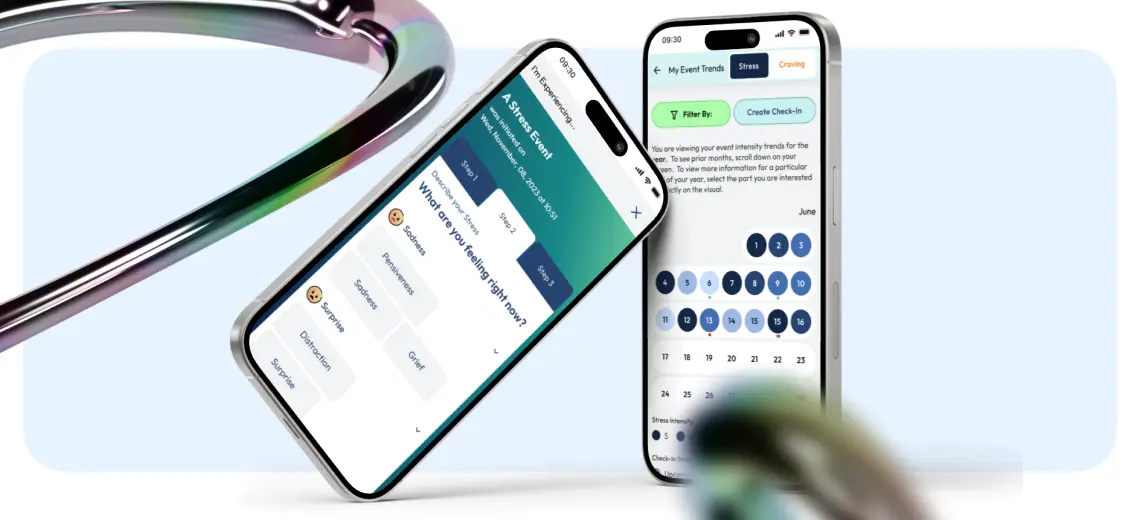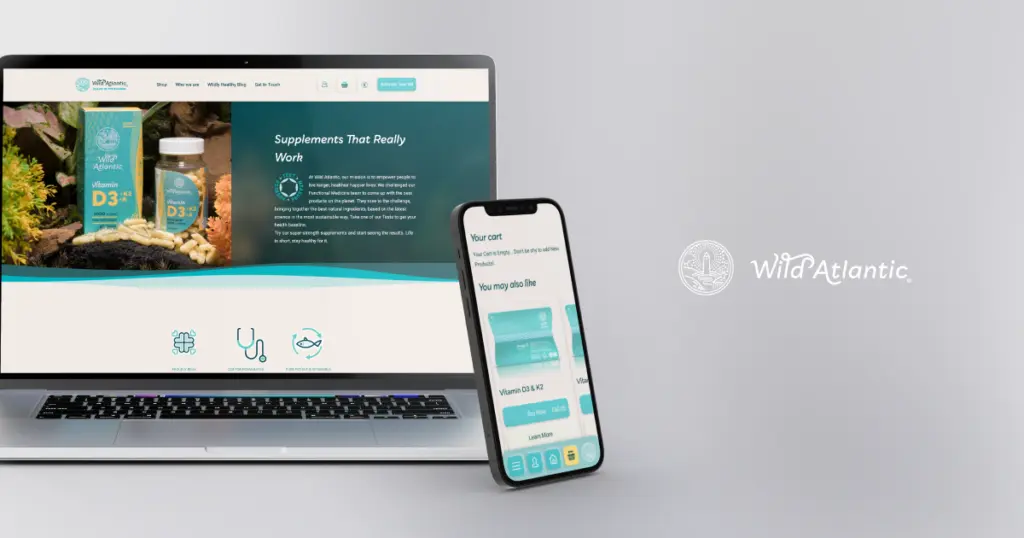Web Development Services
Increase the profitability, availability, and efficiency of your business via the relevant web development solutions with the scalable architecture using the latest technologies and trends.
View PortfolioWe Specialize In
CRM/ERP
Boost sales with a bespoke customer relationship management system & efficiency of core activities with enterprise resource planning
E-Commerce & Retail
Sell your goods online or promote your loyalty programs with our e-stores and customers’ personal accounts.
Marketplace
Realize your idea of creating a platform to unite different sellers and buyers in one place with us.
Software As a Service (SaaS)
Find the new source of income with the software as a service you will have made for your specific requirements.
On-Demand Applications
Launch your new uber-type on-demand startup with our web development services. We will help you develop and boost the idea.
Other
Turn any of your startup ideas into reality with us.
Our Process
Analyze
After a deep market research, we identify your business goals, expectations, and problem-solving steps to realize in your website.
Plan
You get a detailed specification with the defined value of benefits for your website development.
Design
Based on the analysis, you receive the optimal architecture and interface design of the site from our web developers to approve.
Develop
Your web project is bound to match the design specifications while developed and is realized with the most suitable tools.
Test & Integrate
You get all the modules put together and tested against the requirements to fully meet your expectations.
Evolve
After the complete or partial deployment or release to the client, the web product is elaborated or expanded based on the customer’s feedback and business requirements.
See Our Works
FAQ
Which Web Development Services Do You Offer?
Our web development company is committed to helping our clients take their business to the next level! In order to meet that goal, we offer comprehensive services in the following areas:
- CRM/ERP: Leverage a bespoke customer relationship management system to boost sales
- E-Commerce and Retail: Create an e-store to sell your goods online or promote loyalty programs
- Marketplace: Create a platform to unite sellers and buyers at the same time
- Software As a Service (SaaS): Define a new source of income adapted to your needs
- On-demand applications: Develop an on-demand app to launch your startup or boost your business
I'm Looking for Web App Development Services. Why Should I Choose You?
We focus on our customers' satisfaction. Therefore, we go the extra mile to get the best results in all our web development projects.
Furthermore, we have a highly efficient and experienced team of web developers who are ready to help you create the web apps that will make your business grow.
If you have particular requirements, don't worry! We follow an individual approach with each customer, creating ideal solutions for their specific problems.
Moreover, we offer long-term support! We help you keep your business running through the years with the best custom web apps and software development solutions!
In other words, if you hire our custom software development company, you can be sure that you will get custom solutions, we will fix every issue that may arise, and we will do everything possible to get the results you need!
Can You Help Me Create On-demand Web Apps?
Yes, of course! Our custom web app development company can help you create on-demand apps for your business, whether you need to increase your profits or make your operations more efficient.
If you plan to launch an uber-type startup or you want to get comprehensive web solutions for your existing business, we can give you a hand! You only have to call us, and you will have the on-demand web apps you need.
Do You Work with All Industries?
Do you need help with your web development project but haven't found suitable services? Don't worry! We can help you! Our company has worked in the following industries:
- Education
- Cryptocurrency Exchange
- Financial Technologies
- Healthcare and Telemedicine
- On-demand Services
- E-commerce and Retail
- Shared Economy
- Food industry
- Entertainment
- Property management
- Logistics
- Travel and Tourism
If you want to hire a web application development service for an industry that is not listed above, don't hesitate to contact us to get more information about what we can do for you and your business!
What Technologies Do You Use to Provide Your Back-end Web Development Services?
We know you deserve the best, and that's what we offer. At Attract Group, we use cutting-edge tools to develop and deliver the robust and competitive custom web applications that your business needs.
These are the back-end technologies we work with: PHP, MongoDB, NSQ, Graph QL, Laravel 5, Python, Django, Go, RabbitMQ, Websocket, WebRTC, GeoDjango, Celery, REST, ZeroMQ, PostgreSQL, MySQL, Redis, Cassandra, Postgis.
What Technologies Do You Use to Provide Your Front-end Web Development Services?
We strive to make our web application services ideal for our clients, offering different solutions for all needs. Additionally, our team uses only the best tools to guarantee first-class results.
In this sense, these are the front-end technologies we work with: HTML5, CSS3, Angular 2+, VueJs, Ajax, JSON, jQuery, Less, MustacheJS, WebSockets, SocketIO, Grunt, Typescript, ES6, Meteor, SVG, Lodash, Bootstrap.
What Tasks Can I Solve If I Hire Your Web Development Services?
If you hire our custom web app development services, you can find the perfect solution for multiple tasks, including the following:
- We rely on competitive SaaS tools and on-demand service platforms to offer you the web application solution that can help you reduce your expenses, ensuring that it meets your business goals and budget.
- If you want to make efficient use of your time and resources, we can also help you find the right solution with bespoke CRM/ERP systems, analytical tools, and web application solutions!
- With our web app developers' help, you can also leverage online opportunities to gain online visibility and reach more customers with your website.
- Our web development services can also help you build a bigger clientele, using CRM, Saas, and on-demand systems!
How Do You Ensure That the Final Result Meets My Expectations?
As part of our process to develop your web application or website, we run a testing and integration phase.
In this step, all modules are put together and tested, considering your requirements to fully meet your expectations.
Do You Offer Web Development Consulting Services?
Yes, of course! We can help you know if you should improve your web application or website and offer long-term support and improvements to our clients.
Can You Help Me If I Need Progressive Web App Development?
Progressive web apps are becoming more and more popular in most industries. If you need help developing yours, contact us!
What Benefits Can I Get If I Hire Your Web App Developers for My Startup?
Do you need web app services for your startup? We can help you get your new business off the ground.
Our company has more than 10 years of experience in web app development, helping to successfully launch 35 startups.
We follow the Agile and Lean methodology to help startups deliver fast and optimize the workflow to be successful in the market. In addition, we always choose technologies that can benefit your business.
Our dedicated team is always ready to cooperate with customers to get the best results, and they have extensive experience working with new businesses.
Finally, our solutions are profitable! Do you need to optimize your investment to invest in other areas of your startup? Our cost-effective services are for you!
Why Should I Hire CMS Web Development Services?
CSM web development services are ideal for companies that need to find scalable and SEO-oriented solutions for corporate content. If yours belongs to this group and you need help, don't hesitate to give us a call!
Do You Offer WordPress Web Development Services?
Yes, of course! Our experienced team offers WordPress web development services to help you find the best solutions, whether you need to create a first-class site, increase your online visibility, or develop a strategy to gain authority!



































